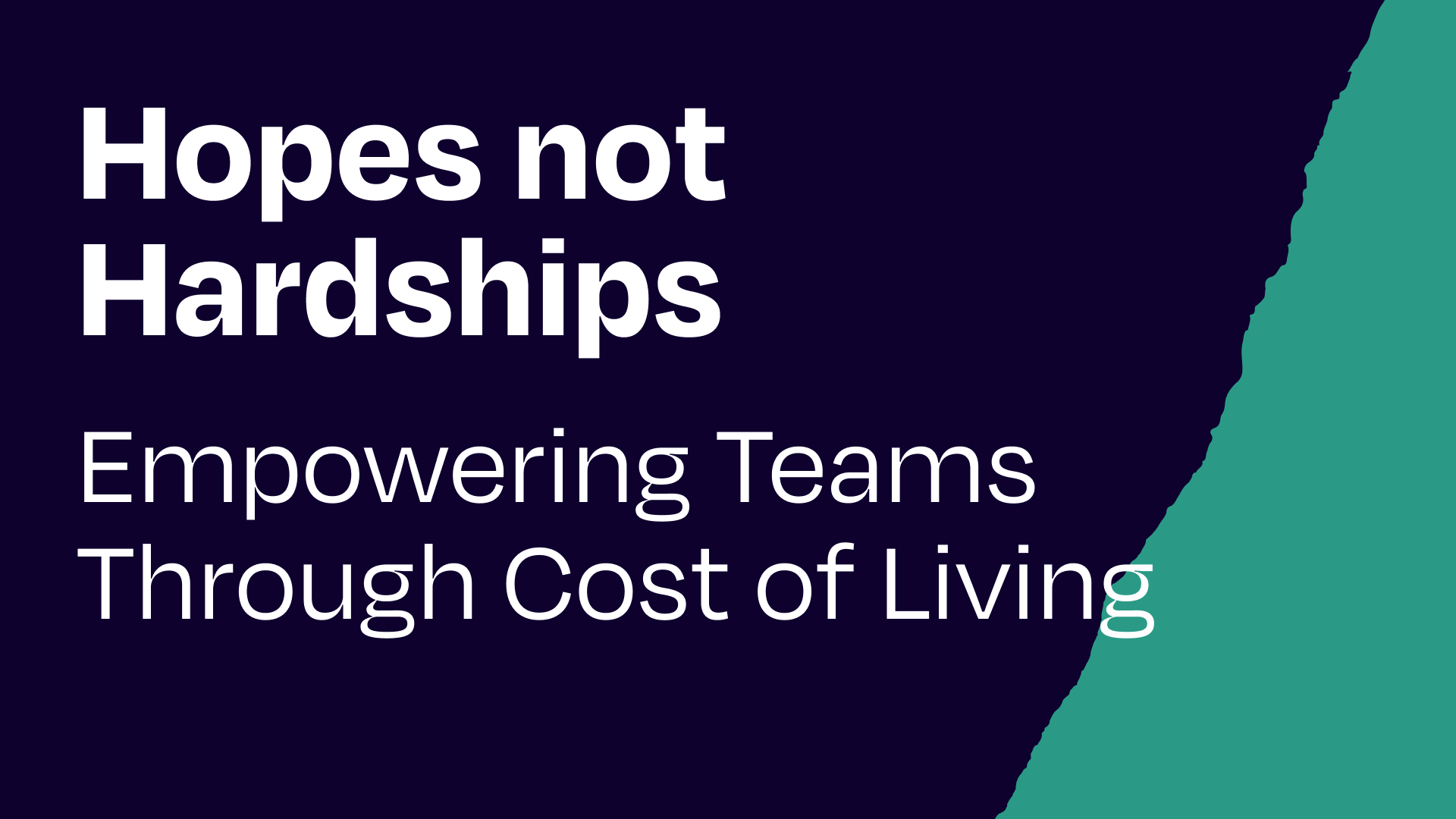The way we talk about cost of living – as a “crisis” and full of doom-and-gloom – may be doing more harm than good.
While it’s undoubtedly important for your employees to understand the significance of inflation and interest-rate increases, focusing too much on the negative creates a sense of inertia, and risks employees switching off because it all seems too hard.
But putting their heads in the sand and avoiding taking action is one of the worst things employees can do. So, employers have an important role to play to help their teams feel empowered, not disengaged in the face of cost of living increases. And it starts with how you communicate and frame the situation or help available.

Think about the language you use
Almost all employers will be thinking about what they can do to educate and support their employees as costs rise. Given the quantity of headlines focused on cost of living impacts there is a risk that people are getting over-saturated and disconnected. Getting the tone of communications right is key – make it understandable, relevant and accessible for all your employees.
It’s also important to make sure your language is as inclusive as possible. So it’s clear to ALL your employees that support is available. “Sometimes people think financial wellbeing programmes are only for people with lots of money. They think talking about money is only for the rich!” says Shah Abbasi, Head of Coaching, Octopus Money Coach.
When you’re engaging your own employees around financial wellbeing – through your communications, surveys, or events – always lead with questions about their hopes and goals. People will feel more inspired to act when messages are positive and connected to their life goals.
Keep long-term financial health in mind
Just because the current focus is on the present day changes to cost of living, that doesn’t mean people can afford to stop thinking about their longer term financial health.
At Smart Pension, Amanda Hall, head of customer engagement and financial wellbeing says:
We try to help people remember this balance by talking about 3 Future P’s – People, Planet, Profit on balance with the 3 present day C’s, which are Covid, Cost of Living and Chaos caused by political uncertainty. We want to change the narrative to focus on empowering communities, employers and members to make small micro actions. Over time these actions can make a big difference to their sense of wellbeing, financial futures and avoiding the hopelessness, and helplessness, instilled by the news headlines covering the ‘3 Cs’.
Find new ways to keep financial wellbeing visible
Offering regular sessions on general topics, or tailored sessions on specific products to help make finances a part of everyday working life and a ‘normal’ topic to engage with at work continues to be important. “Persistence is key” Michaela O’Neill, Head of Reward and HR Analytics at global market research business Ipsos told us in a recent webinar.
But to avoid employees ‘switching off’ it’s important to refresh your approaches to customer engagement and find different ways to engage beyond the standard internal communications. We often see uptake rates of 60% for financial coaching (compared with 5% average benchmark for financial benefits) through our focus on multi-channel communications.
As an employer you could:
- Introduce financial wellbeing ambassadors or “first-aiders” to put a human face to money conversations.
- Create a Slack or Teams “channel” where people can volunteer to become ambassadors and others can ask questions.
- Find ways to personalise messages to specific groups or ‘milestone moments’.
- Leverage your existing internal networks and create events bespoke to their needs and worries (e.g. Parents or D&I networks).
Be a bridge to resources
To help combat the volume of news coming out, employers can be a trusted resource to help employees filter through the headlines or challenge the way things are reported to get a truer sense of the impacts.
Amanda Hall at Smart Pension says: “We delivered a 10-day financial detox to help our colleagues review and recalibrate their finances. For each day we provided a short written guide, a video with a relatable colleague story, and links to more information. We also created a Slack channel where people shared stories of how it worked for them. It really helps to create engagement and bring money conversations to the table so teams can share challenges and successes. Our internal financial wellbeing channel is popular and our colleagues are happy to talk and share their views and ideas on personal finance.”
One of the few times people will engage with their finances is when they look at their payslip each month. Increasingly these are being delivered in an electronic format. Employers could use them to alert staff to some of the changes affecting them, opportunities available to help them with their money, or resources and guides.
1:1 financial coaching
Money is still a taboo subject but there really has never been a better time to start this conversation. We know from our own research that 89% of people want someone they can talk to about money who will offer genuine, practical, and impartial advice.
Having a coach helps employees translate and connect the technicalities of financial planning to their real life. Coaches are especially valuable when circumstances change (for the worse or better) because a lot of the financial advice is generic and not tailored to individual needs. When employees are able to talk openly about money worries, and their goals, they are better able to find solutions that are tailored to them. This is at the core of how our coaches provide bespoke advice to each individual’s situation.


